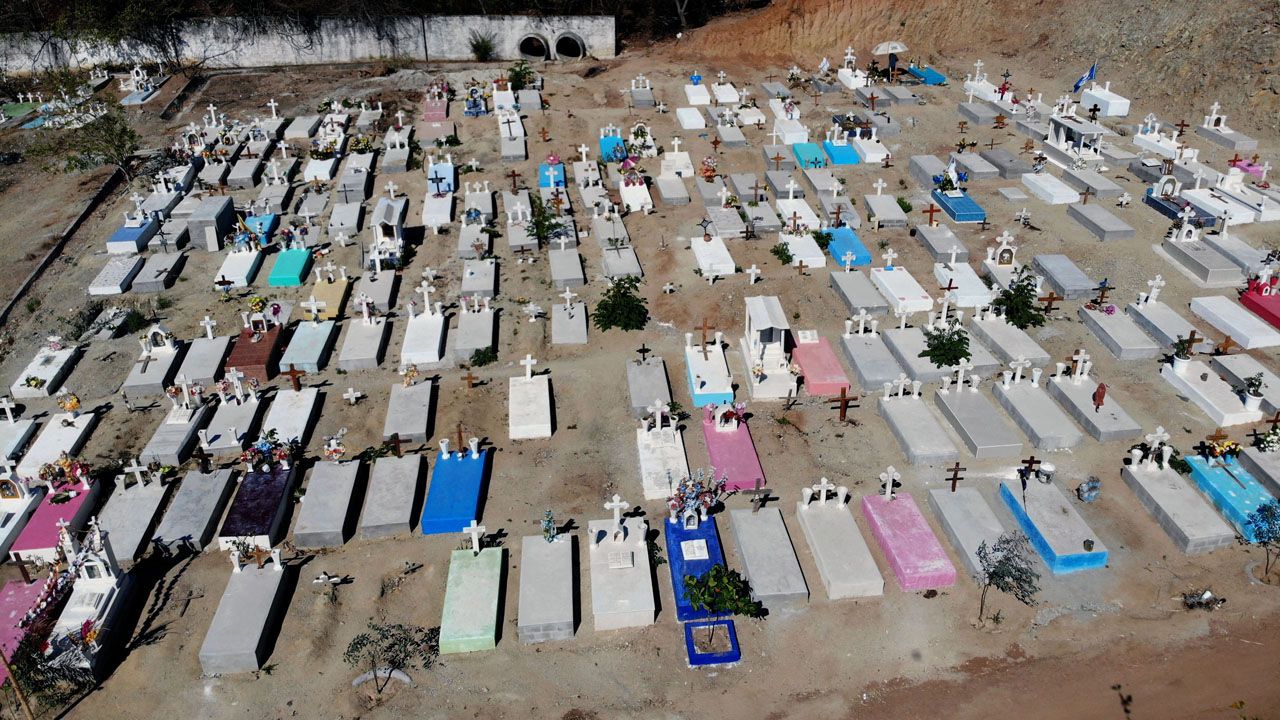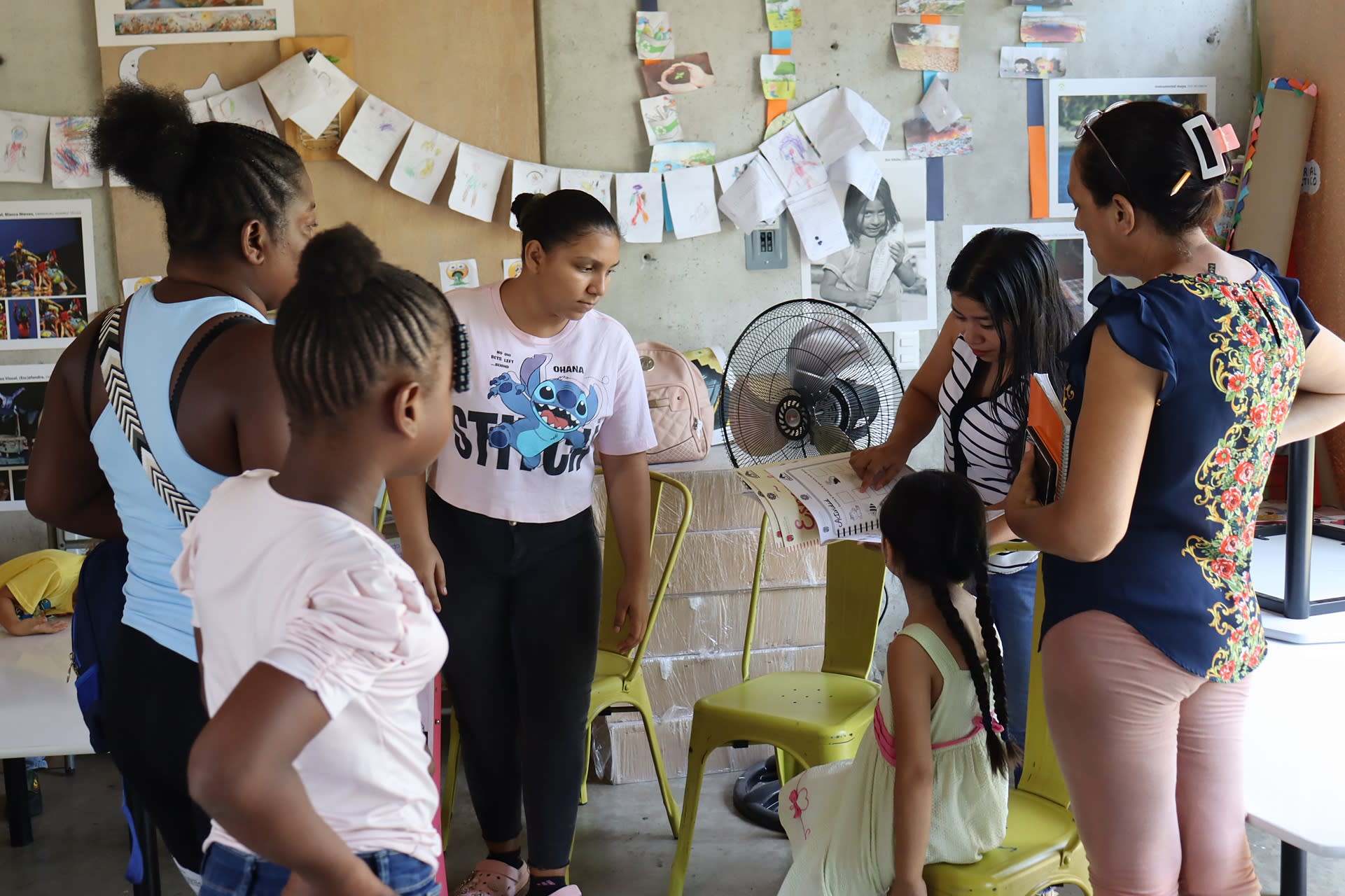International
Million Covid deaths in 2022: WHO

AFP
The World Health Organization announced Thursday that a million people had died from Covid-19 in 2022, calling it a “tragic milestone” when all the tools existed to prevent deaths.
Nearly 6.45 million deaths have been reported to the WHO since the virus was first detected in China in late 2019.
But WHO chief Tedros Adhanom Ghebreyesus questioned whether the world was really on top of the pandemic, this far in.
“This week, we crossed the tragic milestone of one million reported deaths so far this year,” he told a press conference.
“We cannot say we are learning to live with Covid-19 when one million people have died with Covid-19 this year alone, when we are two-and-a-half years into the pandemic and have all the tools necessary to prevent these deaths.
“We ask all governments to strengthen their efforts to vaccinate all health workers, older people and others at the highest risk, on the way to 70 percent vaccine coverage for the whole population.”
Tedros wanted all countries to have vaccinated 70 percent of their populations by the end of June.
But 136 countries failed to reach the target, of which 66 still had coverage below 40 percent.
“It is pleasing to see that some countries with the lowest vaccination rates are now making up ground, especially in Africa,” Tedros said Thursday.
He said only 10 countries had less than 10 percent coverage, most of which were facing humanitarian emergencies.
“However, much more needs to be done,” said Tedros.
“One-third of the world’s population remains unvaccinated, including two-thirds of health workers and three-quarters of older adults in low-income countries.
“All countries at all income levels must do more to vaccinate those most at risk, to ensure access to life-saving therapeutics, to continue testing and sequencing, and to set tailored, proportionate policies to limit transmission and save lives.”
– ‘Real human tragedy’ –
Derrick Sim of the Gavi vaccine alliance said a million deaths in 2022 was a million too many.
“Behind each statistic is a very real human tragedy, and as… the world deals with competing priorities, we cannot become numb to the toll the pandemic is having on individuals, families, and communities,” he said.
More than 593 million cases have now been reported to the UN health agency. Despite testing rates having dropped sharply in many countries, around half of those cases were reported this year.
The Omicron variant accounted for 99 percent of virus samples collected in the last 30 days that have been sequenced and uploaded to the GISAID global science initiative.
Of these, the BA.5 group of Omicron sub-variants remain globally dominant at 74 percent.
“There is increasing diversity within BA.5 descendent lineages, with additional mutations in the spike and non-spike regions,” the WHO said.
Central America
Trump Administration Asks Supreme Court to Block Return of Deported Salvadoran

The Trump administration on Monday asked the U.S. Supreme Court to block a lower court order requiring the return of a Salvadoran migrant who was mistakenly sent to a maximum-security prison in El Salvador, despite having legal protection from deportation.
The U.S. government has until Monday to bring Kilmer Armado Ábrego García back to the United States, as ordered by Judge Paula Xinis in a Maryland court.
According to The Washington Post, the administration argues it lacks authority to comply because Ábrego García is currently in Salvadoran custody.
The U.S. had appealed Judge Xinis’ ruling to the Fourth Circuit Court of Appeals, but the court declined to act immediately—prompting the administration to take the case to the Supreme Court. In its filing, the government stated that “the Constitution entrusts the President, not federal district courts, with the conduct of foreign diplomacy and the protection of the nation from foreign terrorists, including through deportation.”
Ábrego García, a resident of Prince George’s County, Maryland, and married to a U.S. citizen, came under scrutiny in 2019 after an informant claimed he was a member of the MS-13 gang (Mara Salvatrucha).
Although he was initially slated for deportation, a judge later granted him a stay of removal after he requested asylum, according to the lawsuit.
Nevertheless, U.S. Immigration and Customs Enforcement (ICE) detained him on March 12, claiming his status had changed, and sent him to a detention center in Texas.
International
Teachers in Southern Mexico Bring Education to Stranded Migrant Children

Teachers in southern Mexico have created a program to provide classes for migrant children stranded in the region, following a year-over-year increase of over 70% in irregular migration among minors—many of whom lose months or even years of education during their journey toward North America.
In Tapachula, the largest Mexican city bordering Central America, three teachers offer preschool, elementary, and secondary education through the Chiapas State Migrant Education Program (Pemch).
This initiative has been replicated in key municipalities across Chiapas, including San Cristóbal de Las Casas, the capital Tuxtla Gutiérrez, Palenque, Comitán, and other border towns. Currently, there are around 1,345 migrant students and a total of 35 teachers working across farms and shelters.
Pablo Arriaga Velázquez, a teacher with the migrant education program in Tapachula, told EFE that the project was born in response to the large number of migrant minors, as enrolling them in regular schools is often difficult.
Central America
Mulino and Orsi Highlight Shared Vision After Panama Joins Mercosur as Associate State

The Presidents of Panama, José Raúl Mulino, and Uruguay, Yamandú Orsi, highlighted on Monday the path of integration both countries have undertaken in areas such as trade and the defense of democracy, following a meeting held at the Panamanian government headquarters.
In a brief statement to the press, both leaders emphasized that Panama and Uruguay share many values and are working together across different sectors. They also underlined a renewed connection following Panama’s accession last December to the Southern Common Market (Mercosur) as an Associated State.
“Panama has begun a new era of looking southward, seeking opportunities not only for work, business, and friendship, but also for regional integration in a positive sense. Today, I believe we have taken a decisive step in that direction,” said President Mulino.
The Panamanian leader stressed that his country and Uruguay “have much in common” and share “important values in terms of democracy, respect for institutions, and the rule of law—principles that must always be strengthened, no matter how much effort it takes.”
-

 Internacionales2 days ago
Internacionales2 days agoErik Prince Backs Ecuador’s Daniel Noboa in Fight Against Crime and “Narcoterrorism”
-

 Central America3 days ago
Central America3 days agoPanama’s former president Martinelli claims political enemies tried to kill him
-

 Central America2 days ago
Central America2 days agoGuatemala’s Legal Chief Shot Dead in Parking Lot: Investigation Underway
-

 International3 days ago
International3 days agoJavier Milei vows to work ‘side by side’ with the U.S. on trade rules
-

 Central America11 hours ago
Central America11 hours agoHonduras Hosts CELAC Summit Amid Regional Concern Over U.S. Deportations
-

 International11 hours ago
International11 hours agoTeachers in Southern Mexico Bring Education to Stranded Migrant Children
-

 Central America11 hours ago
Central America11 hours agoMulino and Orsi Highlight Shared Vision After Panama Joins Mercosur as Associate State
-

 Central America10 hours ago
Central America10 hours agoTrump Administration Asks Supreme Court to Block Return of Deported Salvadoran















